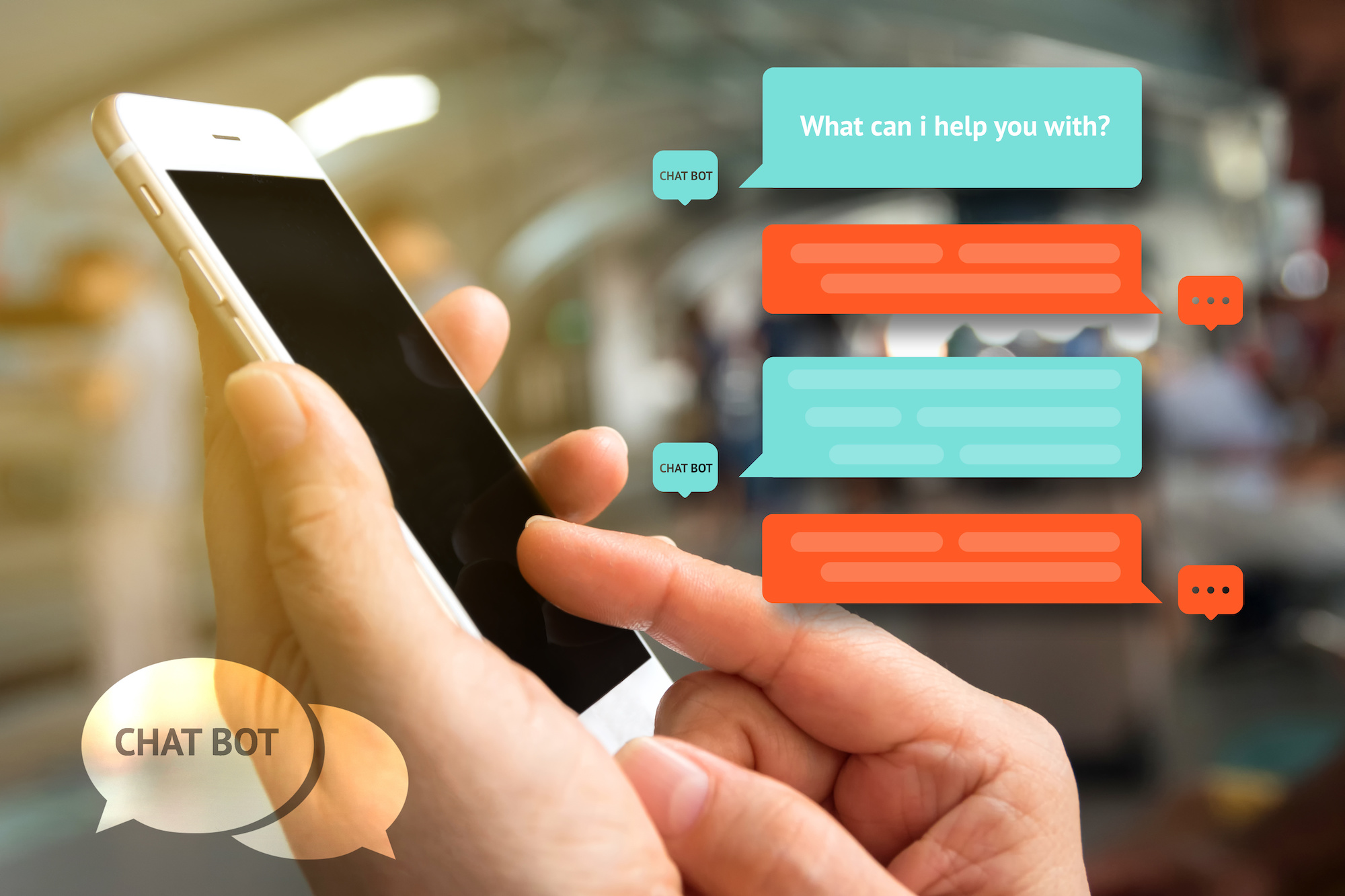Estimated reading time: 6 minutes,
Artificial intelligence (AI) is taking us where we’ve never been before, and it’s an exciting journey. It’s difficult to know how best to make use of it, though, with technological tools like new AI-powered chatbots popping up almost daily.
We recently took a look at the AI tools impacting marketing, but, since that’s just the tip of the proverbial iceberg, we decided to take it a step further and cover various uses of AI and how it integrates with different marketing categories.
This is the second post in a series that aims to bring you a review of available (and affordable!) tech tools small businesses can use.
Rise of the AI-Powered Chatbots
We’ve been spoiled! In an age of widespread instant gratification on all fronts, it’s no surprise people now demand immediate attention, instant answers, and personalized customer experience to capture, convert, and keep them.
And unless companies learn at the speed of light to clone their top employees, it’s very difficult to fulfill all those requirements at once. Or is it?
AI-powered chatbots are now being used in a wide range of applications, including therapy, grading exams, placing food orders, and, of course, dealing with customer queries.
The rise of chatbot technology has made it possible for customer service teams to use AI to answer up to 80% of standard questions.

Almost anybody can now learn to create a chatbot using some of the great tools available. Here are a few we like, in no particular order:
“Conversational marketing” is a new term coined by Drift to describe one-to-one marketing that shortens the sales cycle and creates a more human buying experience for the customer.
Instead of forcing people to go through filling in contact forms and waiting until someone gets back to them, Drift uses AI-powered chatbots to start conversations with individual visitors to the website.
And the AI is now so good at this that it manages 50% of all conversations Drift has with customers and prospects.
Drift got over 300 positive reviews on the G2 tech marketplace, with specific mentions for affordability and being fun to use.
This Facebook Messenger bot allows marketers to create their own Facebook ad bots, SMS bots, and native webchat bots all in one place.
With OmniChat by MobileMonkey, users can communicate one conversation across multiple channels via chat blasting, drip campaigns, and list building.
Customer support teams can view and respond to multiple conversations simultaneously, and the hand-off from a bot to an agent is instantaneous and seamless.
It’s super-easy to send information to customers and engage them in a meaningful conversation.
The chatbot can ask questions and base future responses on the answers to those questions, and you can see and respond to all messages from one inbox—regardless of the platform the customer used to message you.
Mobile Monkey received a 4.6/5 rating on Capterra, which was the average score from 10 reviews.
Born in Scandinavia, Boost also offers a “virtual assistant” (NOT called a chatbot) that is driven by conversational AI.
Companies can automate literally thousands of interactions every day, providing customers with the information they need in any language.
Integrating with the customer support team is simple and streamlined, and the software has unlimited scalability.
Automatic semantic understanding (ASU) enables it to comprehend the most complex customer interactions, which reduces false positives by 90%.
It can also handle upselling, and since conversational AI already offers a good opportunity for companies to offer new product lines, with Boost you can give them the self-service upsell options they want and much shorter wait times.
Boost.ai scored 4.8/5 based on 65 user ratings on Featured Customers but had zero reviews on Capterra. This might have something to do with the location of its base.
Recently recognized as a Leader in chatbots in the G2 Winter Chatbot Report, Aivo’s AgentBot has an extra dollop of personality. It uses natural language processing (NLP) to understand customers’ questions and decipher their intent.
The bot then delivers the most appropriate response based on its ongoing learning. The result is a simple self-service experience that’s available in multiple languages.
The cost starts at a couple of hundred dollars a month, which makes it definitely more affordable than a human employee. Reviews on Featured Customers give Aivo an average rating of 4.8/5 and 13 testimonials.
5. Octane
A Facebook Messenger chatbot that works well with Shopify, Octane AI connects brands with 1.3 billion monthly Messenger users.
You can set up a chatbot in minutes without any coding or web design knowledge, and it enables users to run campaigns to revisit abandoned carts, answer questions, set receipts, and shipping notifications.
It can assist your customers with finding products, boosting new sales as well as preventing lost sales.
Octane’s pricing seems to be controversial, with one review stating that the $99 a month was higher than many other providers.
It seems to have a competitive edge, though, with the option to set it up to receive the user’s information from Messenger, which is a great way of building a company’s database.
6. Chatfuel
Almost half of all Messenger’s AI-powered chatbots run on Chatfuel, according to the company’s website. That includes names such as TechCrunch, David Guetta, and Greenpeace International.
Unlike other platform-agnostic bots, Chatfuel is a limited Facebook Messenger. This can be a bonus in terms of simplicity, however, so if you’re content to do all your engagement on Messenger then this one likely carries appeal for you.
Chatfuel scored 4.5/5 on G2 based on 19 reviews. The advantage is the platform is really affordable, with a free version that allows up to 1,000 users and a package for 25,000 users for just $15 a month.
Yet another Messenger marketing app, ManyChat starts at the attractive base price of $0 and hits $10 a month on the second tier.
ManyChat integrates with several of the most popular tools, including Google Sheets, Shopify, Zapier, HubSpot, MailChimp, and PayPal.
Fairly simple to use and basic in its application, ManyChat offers a reliable option for small businesses with limited chatbot requirements.
With 18 out of 30 reviewers giving it 5 stars on G2, ManyChat has a solid following even though most commenters mentioned some negatives.
Lemonade’s insurance-focused chatbot Maya has a quirky personality that guides users through the sign-up process in a fun and charismatic way.
The bot is specific to Lemonade and its products, which gives it an obvious benefit in terms of the number of scenarios and responses it needs to be programmed with.
After its latest Series D funding round of $300m in 2019 and the appointment of a new CMO, Lemonade is poised to disrupt the industry further in 2020.
We were able to find plenty of reviews about the firm’s insurance offerings, but nothing specifically about Maya except for this article.
The Bottom Line

With the chatbot market projected to grow four times its size by 2024, it’s clear that rising customer demand for self-service options is driving the development of solutions.
The services sector is especially ripe for growth, and healthcare is set to see the biggest increase in usage.
Co-authored by Tracey Stepanchuk and Audrey DeSisto
Tracey is a professional freelance writer for B2B companies in the tech space. View her portfolios at TraceyStep.com and MediaWorldGlobal.com.
Sign up for marketing news delivered straight to your inbox
Follow our founder Audrey DeSisto
Are you keeping up with the AI marketing shift? If not, you're leaving opportunity and revenue on the table.
Smarter Marketing Starts Here
Subscribe to receive actionable AI marketing tips, emerging trends, and tools that help you stay ahead—delivered straight to your inbox. We believe in protecting your data and privacy.
[newsletter_form]

